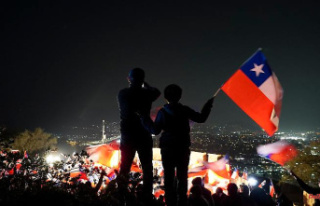Thuringia is planning record spending of around 12.8 billion euros in 2023. The country has to take a three-digit million amount out of its piggy bank for this. Difficult negotiations in the state parliament will show whether it stays that way.
Erfurt (dpa/th) - Thuringia's Finance Minister Heike Taubert (SPD) sees the country prepared for difficult times with a record budget of around 12.8 billion euros. "This is a budget that can get us through 2023 well," said Taubert of the German Press Agency in Erfurt. Before a special session of the state parliament this Monday, the minister appealed to the MPs not to increase the budget any further.
The budget can already only be financed "through a considerable reach into the reserves". Criticism of above-average government spending and the demand for an energy security fund fed by the forecast additional tax revenue came from the head of the opposition CDU parliamentary group, Mario Voigt.
According to Taubert, 640 million euros must be taken from the reserve, this year it was 512 million euros. "That means we can't cover our expenses from revenue alone. That's a burden we carry with us," said the minister.
However, it is important that Thuringia keeps a significant amount in its reserve in view of the financial risks from the current crises and a possible downturn in the economy. "We need a buffer for the years after 2023."
SPD faction leader Matthias Hey said the budget was full of uncertainties. It is unclear how the energy costs for private households, but also for the state and municipalities, will develop. It is all the more important that the country is able to act and invest.
If MEPs want more spending in certain areas, they should set savings positions elsewhere, Taubert said. "The state parliament as legislator must set priorities." She hopes that parliament will not again decide on a global underspending, leaving it up to the government to decide where to cut costs.
According to Taubert, state spending will increase by around 900 million euros this year compared to the real budget volume. There is more money again for the municipalities - alone through the financial equalization it is 115 million euros. In addition, a three-digit million amount more than this year is to flow into investments. The money is intended, among other things, to improve local public transport and to be able to complete construction projects despite price increases. 236 million euros are to flow into the repayment of debts that had increased significantly during the corona pandemic.
After the first reading of the budget on Monday, difficult budget negotiations in the state parliament are imminent until the end of the year. The red-red-green government does not have a majority in the state parliament - it is missing four votes. It is therefore dependent on the opposition for a budget decision, which has had numerous demands of its own in recent years. The opposition groups are the CDU and the AfD, plus the group of the FDP and the Citizens for Thuringia, each with four MPs.
CDU faction leader Mario Voigt called for an energy security fund. It could be fed from the country's additional tax revenue forecast for 2023, which would be more than 400 million euros, he told the dpa. With the help of the fund, a protective shield could be put in place for municipal energy suppliers.
The state executive of the Greens asked the opposition not to delay the budget decision until next spring. This is indicated because the CDU parliamentary group does not criticize individual items in the budget, but completely rejects the draft budget, said Green Party spokesman Bernhard Stengele. According to dpa information, there are also considerations within the CDU parliamentary group to abstain from the final vote on the 2023 budget.












